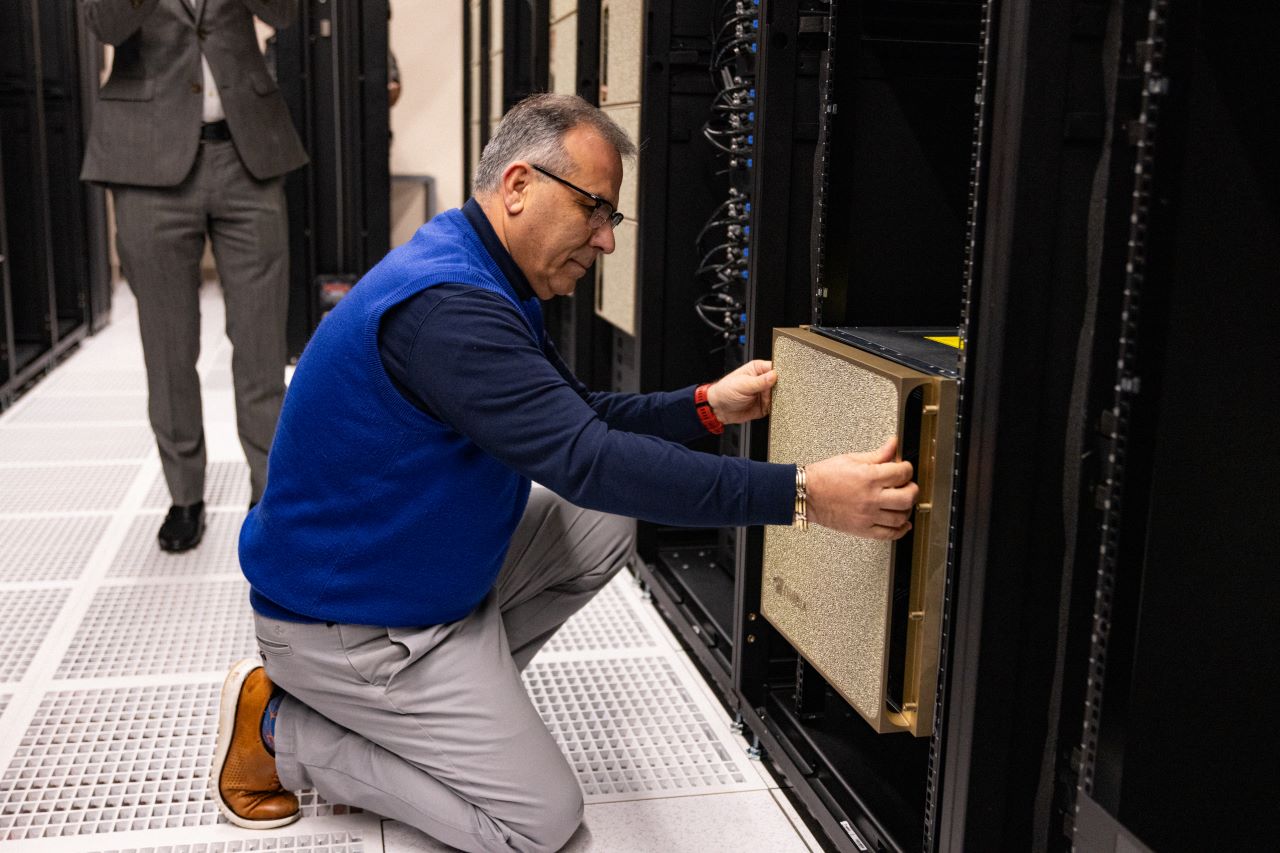University of Florida to acquire one of the world’s most powerful supercomputers
The University of Florida Board of Trustees today approved investing $24 million to acquire a more advanced version of UF’s HiPerGator supercomputer. This acquisition will make UF one of the first higher education institutions in the nation to own such a machine, which includes a type of technology that is not even on the market yet.
NVIDIA — co-founded by UF alumnus Chris Malachowsky — is expected to deliver the machine to the Gainesville campus during the first half of next year. HiPerGator, the AI supercomputer, was brought to UF in 2021 as the fastest of its kind in higher education at the time (and it still is today).
“The University of Florida’s commitment to excellence means that we will always work on the cutting edge of innovation. With this new groundbreaking technology, UF will continue to lead the way nationally and bring tremendous value to the state of Florida,” said Board of Trustees Chair Mori Hosseini. “Students, faculty, staff, and researchers throughout Florida will have access to this incredible resource and use it to help solve some of the world’s greatest problems.”
This development is the latest milestone in UF’s ongoing collaboration with NVIDIA, which began in 2020 and spans education, research, and operations at the university. Additionally, UF will bring value to the state and the larger region by sharing access to HiPerGator with schools across the State University System of Florida.
“This investment not only helps UF and the state of Florida, it also aligns perfectly with UF’s role as a leading public land-grant institution,” Interim UF President Kent Fuchs said. “The new iteration of HiPerGator will significantly broaden our ability to collaborate with other universities, support their researchers, and, indeed, fuel many more important new discoveries.”
The part of HiPerGator originally donated by Malachowsky — an NVIDIA DGX SuperPOD with DGX A100 systems — is being replaced by the new NVIDIA DGX SuperPOD with 63 NVIDIA DGX B200 systems. The systems include the NVIDIA AI Enterprise software platform and are connected and scaled by the NVIDIA Quantum-2 InfiniBand networking platform, providing 400 Gb/s bandwidth to each GPU. This fourth-generation version of UF’s general purpose supercomputer will continue the evolution from HiPerGator 1.0 (2013-2021) to HiPerGator 2.0 (2015) to HiPerGator 3.0 (2021) and HiPerGator AI (2021).
UF’s vision for the implementation of the original HiPerGator included a commitment to becoming the country’s first AI University and infusing AI across academic disciplines. Since 2020, UF has added more than 100 professors who specialize in AI teaching and research to the hundreds that were already at the university. These professors have aggressively pursued groundbreaking new projects, such as identifying solutions to problems facing Florida’s coastal communities, working to bend the medical cost curve, and finding ways to detect diseases earlier.
“UF is a proven leader in AI, and this new technology will help us expand our reach even more,” said UF Interim Provost Joe Glover. “As AI continues to impact all facets of the state’s economy, we are thrilled to continue innovating at UF with this cutting-edge supercomputer.”
With an impact of more than $1.26 billion annually, UF’s research prowess is far and away the top in the state and among the top in the country, with HiPerGator playing a significant role. UF’s AI Across the Curriculum concept has served as a national model for other institutions and is increasing U.S. global competitiveness by building a pipeline of AI-trained workers. This AI education is helping teachers in K-12 and at other colleges and universities incorporate AI into their teaching, and professional development programs are allowing people to upskill after they are already in the workforce.
HiPerGator is now used every semester in courses taught by faculty throughout UF and the State University System, and in research projects led by more than 6,000 researchers. HiPerGator is the power behind Navigator AI — the tool UF deployed in September to give all faculty, students, and staff access to new generative AI capabilities such as Llama, ChatGPT, Gemini, Claude, and Diffusion.
“The University of Florida has been a pioneer in providing AI infrastructure to its students and making that infrastructure available across its curriculum and throughout the region,” Malachowsky said. “With this new HiPerGator NVIDIA DGX SuperPOD with DGX B200 systems, UF will provide students and faculty with an exquisite tool to supercharge AI research, discovery, and innovation across many disciplines — helping train the next generation of AI leaders.”
One major HiPerGator project includes building a digital twin of aspects of the UF Health Cancer Center, providing a realistic environment for training medical staff on how to work in patient and surgery rooms. Another project involves a flooding simulation in Jacksonville that helps city management and emergency teams make accurate pre-storm evacuation plans and coordinate post-storm rescues. And a third project uses AI to track and manage financial markets.
Projects currently being performed with HiPerGator AI will ultimately be switched over to the new supercomputer. These programs will initially go onto the NVIDIA DGX Cloud and then be transferred to the new system once it is up and running so projects will be uninterrupted.
“Upgrading our new supercomputer, HiPerGator, will reinforce our leadership in artificial intelligence and significantly enhance our faculty and students' teaching, learning, and research capabilities,” said Elias G. Eldayrie, the vice president and chief information officer for UF. “This represents a monumental step forward in our commitment to fostering innovation and discovery across all disciplines. It is truly great to be a Florida Gator.”
Early users will be able to access the new machine in June and the technology will be open to everyone by Fall 2025.

